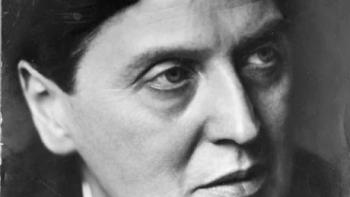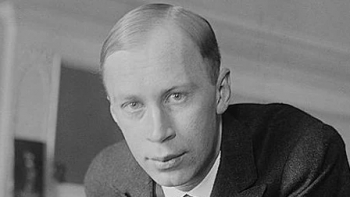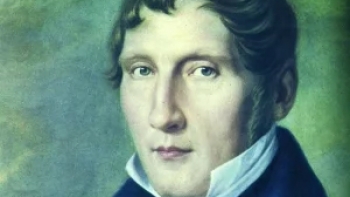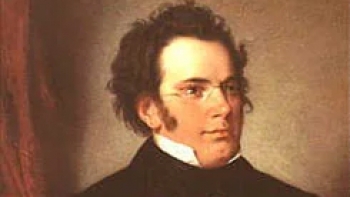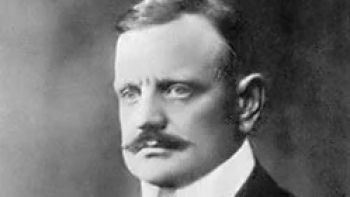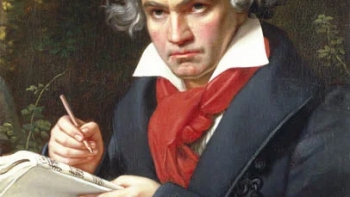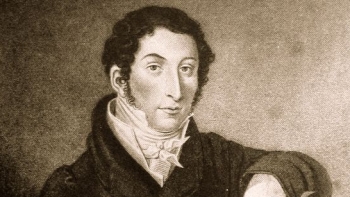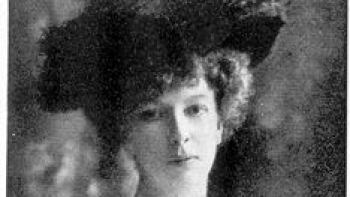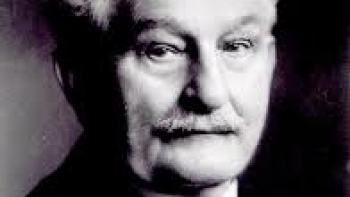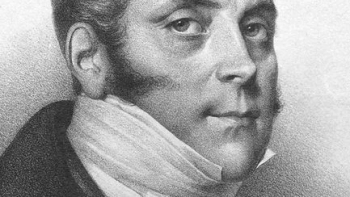Letra Original:
The Sunset (Percy Bysshe Shelley)
There late was One within whose subtle being,
As light and wind within some delicate cloud
That fades amid the blue noon’s burning sky,
Genius and death contended. None may know
The sweetness of the joy which made his breath
Fail, like the trances of the summe air,
When, with the lady of his love, who then
First knew the unreserve of mingled being,
He walked along the pathway of a field
Which to the east a hoar wood shadowed o’er,
But to the west was open to the sky.
There now the sun had sunk, but lines of gold
Hung on the ashen clouds, and on the points
Of the far level grass and nodding flowers
And the old dandelion’s hoary beard,
And, mingled with the shades of twilight, lay
On the brown massy woods – and in the east
The broad and burning moon lingeringly rose
Between the black trunks of the crowded trees,
While the faint stars were gathering overhead.
"Is it not strange, Isabel, said the youth,
I never saw the sun? We will walk here
Tomorrow; thou shalt look on it with me."
That night the youth and lady mingled lay
In love and sleep – but when the morning came
The lady found her lover dead and cold.
Let none believe that God in mercy gave
That stroke. The lady died not, nor grew wild,
But year by year lived on – in truth I think
Her gentleness and patience and sad smiles,
And that she did not die, but lived to tend
Her aged father, were a kind of madness,
If madness’tis to be unlike the world.
For but to see her were to read the tale
Woven by some subtlest bard, to make hard hearts
Dissolve away in wisdom-working grief;
Her eyes were black and lustreless and wan:
Her eyelashes were worn away with tears,
Her lips and cheeks were like things dead – so pale;
Her hands were thin, and through their wandering veins
And weak articulations might be seen
Day’s ruddy light. The tomb of thy dead self
Which one vexed ghost inhabits, night and day,
Is all, lost child, that now remains of thee!
"Inheritor of more than earth can give,
Passionless calm and silence unreproved,
Where the dead find, oh, not sleep! but rest,
And are the uncomplaining things they seem,
Or live, a drop in the deep sea of Love;
Oh, that like thine, mine epitaph were –
Peace!"
This was the only moan she ever made.
Tradução para Português:
O pôr do Sol (Percy Bysshe Shelley)
Ali, tarde, estava alguém dentro de cujo subtil ser,
O génio e a morte contendiam
Como luz e vento dentro de uma nuvem delicada
Que esmorece entre o azul ardente do céu do meio-dia.
Ninguém pode saber
A doçura da alegria que tornava frágil a sua respiração
Como os arrebatamentos do ar do Verão,
Quando, com a dama do seu amor, que então
Primeiro conheceu a liberdade de duas pessoas que se amam,
Ele caminhou ao longo da vereda de um campo
Que para este um antigo bosque sombreava,
Mas para oeste ficava aberto ao céu.
Ali agora o Sol tinha mergulhado, mas linhas de oiro
Suspensas nas cinzentas nuvens e nas pontas
Da distante relva e das oscilantes flores
E da barba branca do velho dente-de-leão,
E misturadas com as sombras do crepúsculo, jaziam.
Sobre os compactos bosques castanhos – e a este
A ampla e ardente Lua hesitantemente surgia
Entre os pretos troncos das compactas árvores,
Enquanto as pálidas estrelas se reuniam em cima.
"Não é estranho, Isabel, disse o jovem,
Que eu nunca tenha visto o Sol? Amanhã nós
Viremos aqui; tu contemplá-lo-ás comigo"
O jovem e a dama passaram em amor e sono
Essa noite juntos – mas quando a manhã chegou
A dama, morto e frio o seu amante encontrou.
Que ninguém creia que Deus vibrando tal golpe
Foi misericordioso. A dama não morreu, nem se enfureceu,
Mas ano após ano ela viveu – na verdade eu penso
Que a sua doçura e paciência e tristes sorrisos –
E que ela não morreu, mas viveu para tomar conta
Do seu velho pai – eram uma espécie de loucura,
Se loucura é ser diferente do mundo.
Mas vê-la era como ler o conto
Urdido pelo mais subtil bardo para fazer os corações duros
Dissolverem-se em dor pensada;
Os seus olhos eram pretos, baços e cansados:
As suas pestanas estavam gastas pelas lágrimas,
Os seus lábios e faces como coisas mortas – tão pálidos;
As suas mãos eram finas e através das suas vagueantes veias
Fracas articulações podiam ser vistas
À luz rósea do dia. O túmulo do teu ego morto
Que um atormentado fantasma habita, noite e dia,
É tudo, criatura perdida, o que resta de ti!
"Herdeiro de mais do que a terra pode dar,
Calma e silêncio irrepreensíveis,
Onde os mortos encontram, oh, não sono! mas descanso,
E são as coisas imperturbáveis que eles parecem,
Ou vivem, gota no profundo mar do Amor;
Oh, que o meu epitáfio seja como o teu –
Paz"
Este foi o único lamento que ela fez.

